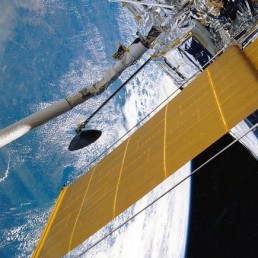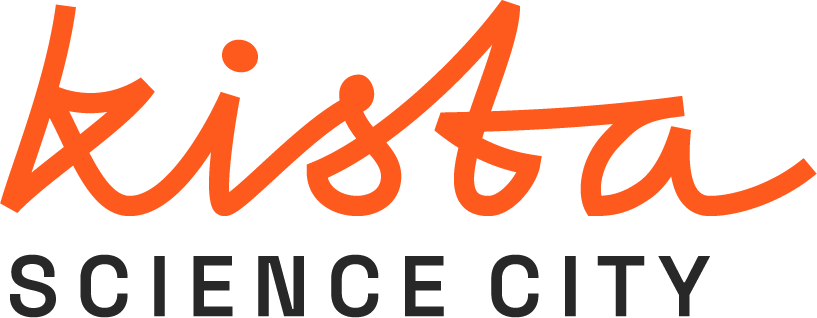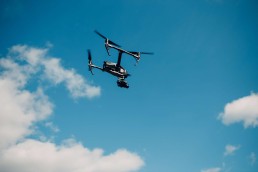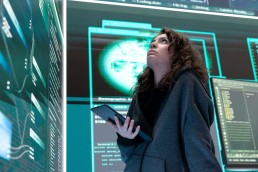Sweden is taking a bigger leap into space innovation. Through ESA Phi-Lab Sweden — a new national initiative led by RISE — the country is joining the European Space Agency’s (ESA) innovation network with a sharp focus on AI and edge learning in space systems. Backed by Vinnova and ESA, the lab will accelerate the commercial use of AI technologies across a range of space-related applications — from Earth observation and data analysis to AI-enabled autonomy in space systems.
The programme is coordinated by Kista-based Tobias Edman, Director of ESA Phi-Lab Sweden and Unit Manager for Data Platforms and Systems at RISE.

Tobias Edman, Director of ESA Phi-Lab Sweden
From research to real-world innovation
ESA Phi-Lab Sweden is part of a growing European network that brings advanced technologies from research labs to market-ready solutions. With a total budget of €5.2 million, the programme will run for six years. During the first four years, RISE will launch open calls and award seed funding for early-stage projects in collaboration with Vinnova.
“The lab will put Sweden in a European focus for the analysis of space data on space platforms,” says Tobias Edman. “There is huge potential in more efficient analyses for Earth observation, but also for autonomous systems and exploration of the space environment.”
The initiative is run in partnership with KTH, the Swedish Institute of Space Physics (IRF), and the Swedish Space Corporation (SSC). It also ties into Sweden’s wider space data ecosystem — including the Swedish Space Data Lab, a national innovation environment that gives companies access to the Digital Earth Sweden platform and development tools.
Space as a testbed
The programme invites collaboration with companies — from startups to established developers — working with AI, data analysis or edge computing to develop and test solutions for space environments.
“We want to collaborate with both hardware and software developers,” says Edman. “There’s great potential in working with traditional space companies, as well as with software firms developing AI models for data analysis on space platforms. For startups aiming to demonstrate their capabilities in a space environment, ESA Phi-Lab Sweden is a powerful enabler. They’ll be able to access funding, testing facilities, and expert assistance to support development.”
These efforts are also supported by RISE’s national network of testbeds and demo environments, where companies can test and adapt their technologies under real-world conditions.

New opportunities for tech companies
The space sector is increasingly shaped by data, AI, and automation — areas where Sweden, and technology clusters like Kista, have strong capabilities. ESA Phi-Lab Sweden creates a new path for companies to explore space-related development without needing to come from the traditional aerospace industry.
For the many cutting-edge companies in Kista, the programme presents an opportunity to connect with national efforts and explore how their expertise in AI and edge computing could find applications beyond Earth.
Learn more and explore how to get involved
Related Articles
October 29, 2025
Integrating drones into city life: Stockholm takes next step
The boundaries of conflict are shifting. Today, national security isn’t just…




